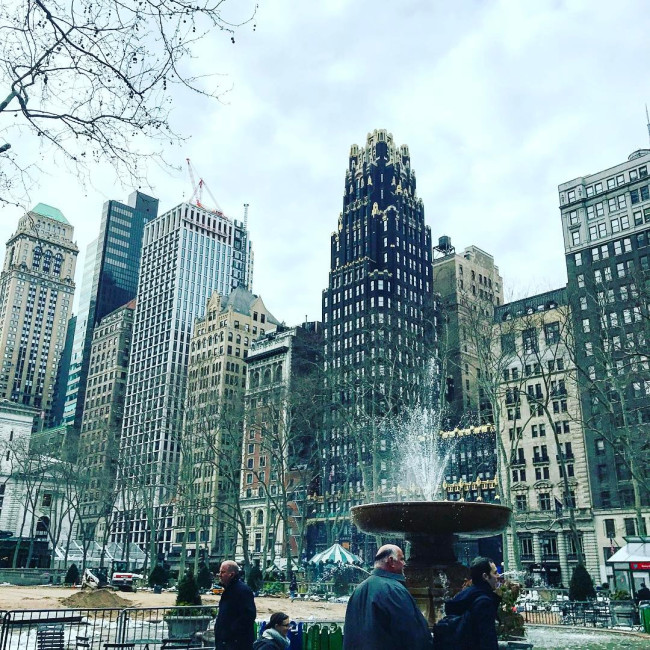Pros and cons of buying a sponsor unit

This three-bedroom sponsor co-op in Astoria Lights, a renovated prewar building in Queens, is on the market for $1,295,000.
Manuel Rodriguez/Corcoran
When a co-op apartment is described as a sponsor unit, it means it is being sold by the original developer or owner of the entire building. Typically, these apartments are easier to buy than other co-ops, but there are some advantages and disadvantages to be aware of here. For starters: When you buy a sponsor co-op you won’t be dealing with a resale owner or the co-op board and the apartment will typically have been a rental.
Many prewar rental complexes in New York City were converted to co-ops during the 1970s and 1980s as a way of rehabilitating the buildings and creating a new ownership structure. So a sponsor co-op may be owned by the original owner of the building or a property company that has come in more recently and bought and renovated an entire co-op building, like the prewar building Astoria Lights in Queens (shown above).
John Petras, managing principal of RockFarmer Properties, the developer of Astoria Lights, says the renovation added condo-like amenities to the building. “Each home was completely gutted, including all of the electric, plumbing, walls, insulation, windows—everything—and replaced," he says. New amenity spaces were added as well, including a gym, lounge, playroom, co-working space and outdoor recreation areas.
The application process for buying a co-op in NYC is notoriously daunting and one of the main advantages of the sponsor unit is that you don’t need board approval to buy. The sponsor will still need to assess your finances but as long as your offer is accepted—and assuming you can get a mortgage—the apartment is yours. In some cases, you might also be allowed to pay a smaller down payment.
With fewer financial hoops to jump through and no board interview, the buying process tends to be quicker but you may pay more for the convenience. Here’s what to consider if you are looking to buy a sponsor co-op.
No board interview but you may pay more
The co-op board interview is the final step to approval when buying a co-op in New York City and it’s possibly the most daunting. The scrutiny of the board can come as a shock and avoiding this can open doors to ownership for buyers who might otherwise be rejected, like freelancers and consultants with contract work, or entrepreneurs who might be cash poor at the time of purchase.
Co-ops are typically priced more affordably than condos but you can expect to pay more for a sponsor co-op than a resale co-op. Jonathan Miller, president and CEO of the appraisal firm Miller Samuel, says if you compare two similar apartments and one is a sponsor unit and the other is a resale, there might be “a 5 percent or even 10 percent premium on the sponsor unit.”
Closing costs tend to be higher than resale co-ops
Compared to a condo, a co-op will have lower closing costs mainly because you won’t have to pay title insurance (because there is no deed for a co-op) or mortgage recording tax (which just applies to real property).
However, with many sponsor units, even when the market favors buyers, the developer will insist on the buyer paying the transfer tax of 1 percent of the purchase price on purchases over $500,000 (or 1.425 percent on purchases of $500,000 or less), plus a .4 percent transfer tax to New York state. This may be negotiable when it is a resale but less so if it’s a sponsor unit.
Looking to buy a co-op apartment? National Cooperative Bank offers competitive rates and easy pre-qualification. With 40 years of lending to buyers in New York City, NCB is the bank for co-ops. After all, Cooperative is our middle name! Call us at (646) 201-4714 or email Brittney Baldwin at bbaldwin@ncb.coop. NMLS #507535. Equal Housing Lender.
It may be newly renovated but not to the highest spec
A sponsor unit will typically have been rented out, perhaps for decades, so in order to sell it, the developer will renovate the apartment. Keep in mind, there’s probably a difference between a renovation you would do yourself and a sponsor makeover. Some buyers may find themselves re-renovating within a couple of years if the sponsor’s upgrades were merely cosmetic.
If the sponsor unit hasn’t been renovated, the apartment will likely need considerable work. The apartment may have some prewar decorative features but upgrades may require the removal of lead-based paint or asbestos. An inspection will be important to uncover the overall condition of the apartment before buying, and what might be involved in a renovation.
The Agency's Pre-Market Advantage
Discover pre-market properties in your dream neighborhood that perfectly suit your needs and budget. Meet and deal with sellers before their apartment hits the market.


Let The Agency's pre-market team give you exclusive access to apartments in your price range and desired neighborhood that no one else has seen. More options, less competition, no bidding wars.
You might get away with a smaller down payment
The deal you make will ultimately be dictated by the by-laws for the individual co-op, but Patrick Lavell, a loan officer and director at Hudson United Mortgage, tells Brick Underground, “in most cases a sponsor sale means credit issues, [and] down payment requirements or other common barriers to purchasing a co-op can be ignored.” So if the co-op generally requires a 30 percent down payment, for a sponsor unit, you may be able to pay just 20 or even 10 percent.
A previous version of this article included writing by Leah Hochbaum Rosner































